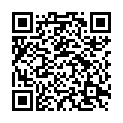|
|
|
| Module code: E2540 |
|
|
2PA (2 hours per week) |
|
2 |
| Semester: 5 |
| Mandatory course: no |
Language of instruction:
German |
Assessment:
Oral examination (50%), project work (50%)
[updated 08.01.2020]
|
E2540 (P211-0227) Electrical Engineering and Information Technology, Bachelor, ASPO 01.10.2018
, semester 5, optional course, technical
|
30 class hours (= 22.5 clock hours) over a 15-week period.
The total student study time is 60 hours (equivalent to 2 ECTS credits).
There are therefore 37.5 hours available for class preparation and follow-up work and exam preparation.
|
Recommended prerequisites (modules):
None.
|
Recommended as prerequisite for:
|
Module coordinator:
Prof. Dr. Michael Kleer |
Lecturer: Prof. Dr. Michael Kleer
[updated 10.09.2018]
|
Learning outcomes:
Based on previous lectures, this module will familiarize students with the applications of microcontrollers in defined areas of automation technology. After successfully completing this course, students will be able to analyze tasks and justify their selected approach. They will then be capable of implementing their approach using hardware and software and thus, designing a functional prototype Finally, students will be able to test their prototype and modify the solution to achieve better results. Where necessary, students will have the opportunity to consult with the lecturer and/or carry out simulations. Our primary focus will be the technical application of skills.
[updated 08.01.2020]
|
Module content:
1. Planning circuits using various controllers and construction of the planned circuits 2. Programming the resp. applications 3. Setting up and implementing the resp. applications
[updated 08.01.2020]
|
Teaching methods/Media:
Project
[updated 08.01.2020]
|
Recommended or required reading:
Horacher, Martin: Mikrocomputer, TU Wien, 1999 Klaus, Rolf: Der Mikrocontroller C167, VDF Hochschulverlag, 2000 Schultes, Renate; Pohle, Ingo: 80C166 Mikrocontroller, Franzis, 1998, ISBN 978-3772358937
[updated 08.01.2020]
|


